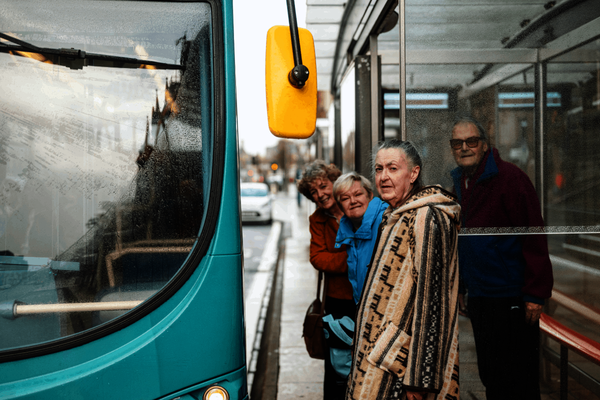An incredible 100% of UK Network members believe their Age-friendly Community (AfC) is having a positive impact on older residents, with five key impacts shining through across the UK Network.
Expanding older people’s access to and use of local spaces
AfCs are taking stock of a community’s strengths and gaps in the domains of transport and outdoor spaces and buildings. They are finding out how older people experience them, which is prompting changes to the built environment, in turn empowering residents to be more independent.
Many communities have conducted walking audits with older people which have led to improvements to parks, open spaces, town centres, and pedestrian crossing timings and locations.
Other AfCs in more rural areas have prioritised developing and supporting community transport schemes. In Barnsley, the council worked with older residents to plan the locations for 26 new benches and seats, and Lambeth used age-friendly principles to inform their Kerbside Strategy which has widened pavements and added seating and greenery.
Expanding older people’s access to support and services
AfCs are improving awareness of and communications around services, making services more age-friendly and developing new offers where there are gaps. Communities are both providing digital support, whilst also ensuring there are offline ways to access services and find out what’s happening locally. Others are prioritising financial inclusion, such as Newham, where changes to the delivery of their Our Newham Money Service has led to an 80% increase in the number of people aged 50+ supported by financial services.



